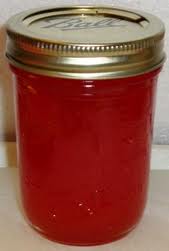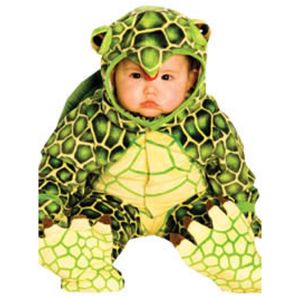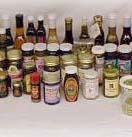Who can’t get enough watermelon jelly.
The British Columbia Centre for Disease Control (that’s in Canada) is warning the public not to consume watermelon jelly prepared by Jamnation Fine Foods that were sold in 120 ml sized jars. This jelly was sold at charity booths in various locations in British Columbia in 2010. This product may be contaminated with Clostridium botulinum. Toxins produced by this bacterium may cause botulism, a life-threatening illness.
“This recall was prompted by a suspect case of botulism on Vancouver Island, and the subsequent investigation of foods recently consumed by the individual,” explains Dr. Eleni  Galanis, Physician Epidemiologist with BCCDC, an agency of the Provincial Health Services Authority. “Botulism is a serious illness, and it is critical that anyone who purchased this item discard it immediately.”
Galanis, Physician Epidemiologist with BCCDC, an agency of the Provincial Health Services Authority. “Botulism is a serious illness, and it is critical that anyone who purchased this item discard it immediately.”
“The jelly consumed by the case was sold through the British Columbia Huntingtons Research Foundation charity booths in Duncan, and may also have been sold in other parts of province,” explains Sion Shyng, Food Safety Specialist at the BCCDC. “We’re concerned that this product may still be in the homes of consumers as jellies can be stored and consumed long after they are purchased.”
The BCCDC is currently working with BC Health Authorities and the BC Ministry of Health Services to ensure the recalled product is removed from distribution and is investigating any possible cases of illness.

 that can lead to illness. Washing hands after touching them is very important.
that can lead to illness. Washing hands after touching them is very important. the First Commercial Kitchen plant.
the First Commercial Kitchen plant. Taiwan has seen eight botulinum poisoning cases involving 11 people since April. One person was killed, five remain hospitalized and five others have been discharged from hospitals after treatment.
Taiwan has seen eight botulinum poisoning cases involving 11 people since April. One person was killed, five remain hospitalized and five others have been discharged from hospitals after treatment. Six months after his parents, Theresa Fitzpatrick and Alex Douglas, were faced with the decision of whether to turn off his life support as baffled medics feared the worst, Logan is doing great (right, photo from
Six months after his parents, Theresa Fitzpatrick and Alex Douglas, were faced with the decision of whether to turn off his life support as baffled medics feared the worst, Logan is doing great (right, photo from  • a plastic plant pot was used to sieve chickpeas and the conveyor, which turned out thousands of cans of pulses each day, had also been used to tin chilli hemp seeds for fish bait;
• a plastic plant pot was used to sieve chickpeas and the conveyor, which turned out thousands of cans of pulses each day, had also been used to tin chilli hemp seeds for fish bait; A child in Scotland has been in hospital for six weeks
A child in Scotland has been in hospital for six weeks
 The
The 
